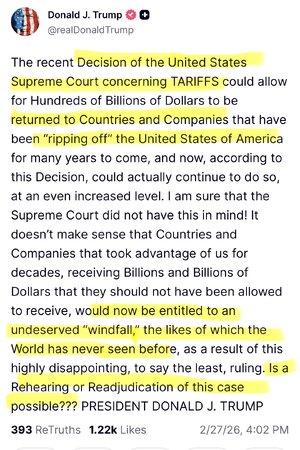“… Trump's tariff order argued that a serious balance of payments deficit existed in the form of a $1.2 trillion annual U.S. goods trade deficit and a current account deficit of 4% of GDP and a reversal of the U.S. primary income surplus.
Some economists, including former International Monetary Fund First Deputy Managing Director Gita Gopinath, disagreed with the Trump administration's alarm.
"We can all agree that the U.S. is not facing a balance of payments crisis, which is when countries experience an exorbitant increase in international borrowing costs and lose access to financial markets," Gopinath told Reuters.…”

